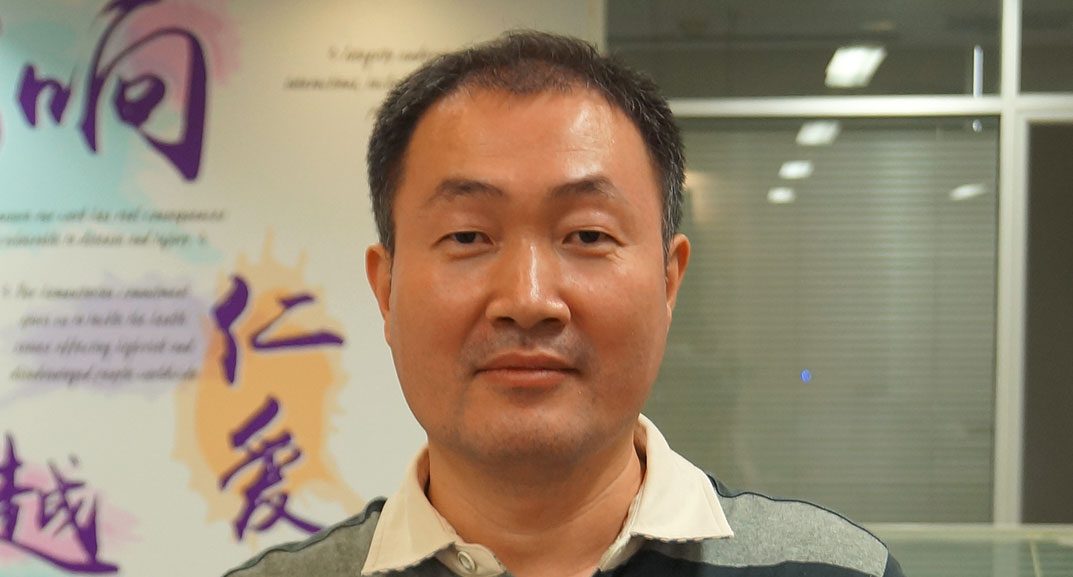
Puhong Zhang: Solutions and strategies to tackling non-communicable diseases
Meet Associate Professor Puhong Zhang, Senior Research Fellow and Head of the Diabetes Research Program at The George Institute China.
How long have you been working at The George Institute?
I joined The George Institute, China in May 2011, so it has been more than 4 years. Now I serve as the head of Diabetes Research Program, and also the acting director of the newly established China Center for Mobile Health Innovation (CCmHI).
What attracted you to working at The George Institute?
The George Institute is famous for its great impact and expertise in the field of non-communicable diseases (NCD) research. If you have the dream of improving people’s health, this is the place to help you make it come true. I feel lucky to have joined The George Institute. I love to compare it to a high-speed train that is carrying health and scientific research over a long distance to tackle the health problems affecting the whole population.
What does your work focus on?
My research focus is on methodologies in NCD management, especially in diabetes management, salt and cooking oil reduction, and healthy diet.
What is a recent highlight?
One of the most important highlights is definitely working at CCmHI. Since its establishment late last year, we’ve been putting our efforts in the following projects:
- The smartphone based app called FoodSwitch has been localized to the China market with China CDC and is now available for iOS and Android users in China. This app was initially designed and developed by our colleagues in Australia, aiming to provide a better understanding of food labels for consumers and make shopping for healthier packaged food easier. CCmHI brought it to China as its pilot study. As the first attempt to investigate and standardize the coordination of packaged food information in China, it will empower people with access to this information via mobile technology to make their own decisions about what to buy and what to eat.
- In addition, CCmHI recently received a grant of about AUD $1.4 million to enact a study called SMARTHealth Diabetes to support the development and evaluation of a digital health intervention which is based on the best practice clinical guidelines to help type 2 diabetes (T2DM) patients better manage their condition and prevent complications.
- Also, our researchers are working on a landscaping research about mHealth in China, particularly from the academic point of view. The result is expected to be published in this November and will provide people who are interested in or working in the mHealth field with a comprehensive understanding of what is going on in academic community about mHealth.
What difference will this make to healthcare and why?
Healthcare in China is facing huge challenges now. To better control and prevent disease, as well as help people improve health, scientific methods and high efficiency are both necessary. On the other hand, the lack of resources brings a lot of pressure to the fragile system.
But mHealth has huge potential. As the number of mobile phone users is booming and the Chinese government has shown strong support in this field, I’m very positive about the future of it in bringing better healthcare to patients as well as improving the healthcare delivery. By enacting more and closer international collaborations, mHealth will be a key component in the routine policy and practice for chronic disease management. I’m looking forward to witnessing another healthcare reform brought by mHealth, not only in China but worldwide.
What is your professional background?
Epidemiology focusing on NCD control.
To explain to people what I do I say….
My job is to develop both scientific and efficient solutions and strategies to tackle NCD. The research results will provide the government, health sectors and individuals with evidence-based disease management and healthcare services.
To unwind at the end of the day I….
I love playing some sports like swimming and badminton.
My first job was….
I started my career as teacher and researcher in Hebei Medical University where I graduated.
My biggest achievement so far….
Earlier this year, one of our studies was published in Nutrients, introducing the amount and sources of salt intake among adults in Beijing. In the study we developed a new approach called ‘one week salt intake estimation method’ which combined weighing cooking salt and major salt containing foods with evidence based estimation of salt consumption when dining out. This method was proven to be very efficient and more importantly, as it can tell where the salt eaten by people are from, it can provide guidance for sodium reduction in everyday life.

